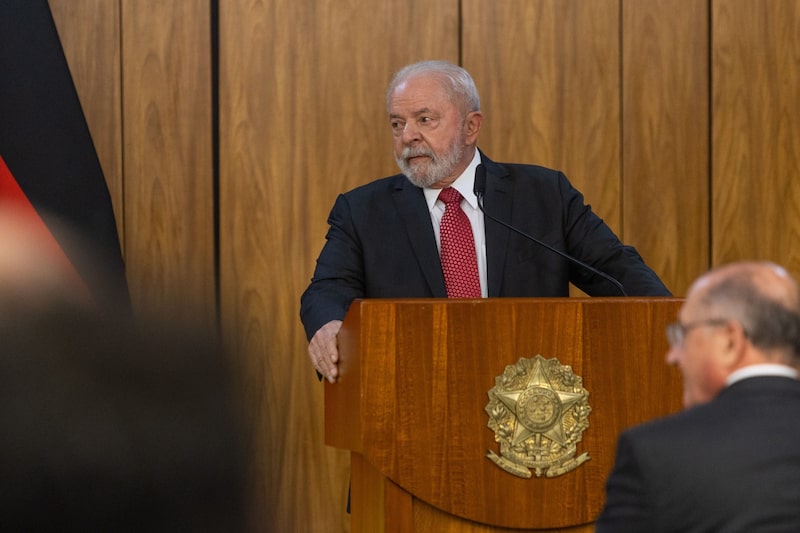Bloomberg — Brazil’s swap rates rose further after President Luiz Inacio Lula da Silva bolstered criticism of the central bank, saying high interest rates are ruining the economy while failing to control inflation.
The leftist president elaborated on previous criticism of the monetary authority in a message sent to lawmakers on Thursday afternoon and then in a TV interview broadcast late on the same day. Swap rates, which had already been rising since the central bank vowed to keep its key rate unchanged until inflation expectations converge to target, rose further after his comments.
Contracts maturing in January 2024, which signal investor expectations for the Selic rate at the end of the year, gained 4 basis points in morning trade in Sao Paulo. Those expiring in January 2027 jumped 17 basis points.

“Investors are already worried about Lula’s fiscal policy, the last thing they want to see is a political attack on monetary policy,” said Win Thin, head of currency strategy at Brown Brothers Harriman & Co. in New York.
Lula had initially raised investor concerns two weeks ago, when calling the central bank’s recently approved autonomy law “nonsense” and saying too tight inflation targets were “choking the economy.” On Thursday he said in an interview to Rede TV/UOL that central bank chief Roberto Campos Neto “has to explain why keeping an interest rate of 13.75%, and why the possibility of additional hikes if we don’t have demand inflation.”
He added that he intends to have a meeting with banks and businesspeople to discuss Brazil’s monetary policy because “there’s no reason for interest rates to stand at 13.75%.”
‘Active’ FX Policy
Earlier on Thursday, Lula defended the use of additional tools besides interest rates to rein in inflation, including a more active policy to reduce foreign exchange volatility and the regulation of fuel prices and food stocks.
In a 180-page message to lawmakers, he blamed his predecessor Jair Bolsonaro for abandoning the use of “important instruments to fight inflation,” leading to an over-reliance on high interest rates that are hurting the economy. He also said a more stable currency would help mitigate inflation.
“A more passive exchange rate policy in recent years has accentuated the volatility of the Brazilian currency (USDBRL) against the dollar, with perverse consequences for prices,” Lula said in the message delivered by his Chief of Staff Rui Costa at the beginning of the congressional year.
In his message, Lula said Latin America’s largest economy lost its ability to smooth out swings in prices of food and fuel when the government cut down on grain storage facilities and changed the corporate focus of state-owned Petroleo Brasileiro SA, making it more dependent on imports.
In addition, the Bolsonaro administration “abandoned sector-specific policies to induce an increase in the production of critical goods,” the message read. “On the other hand, it implemented a policy of high interest rates that slowed down the economic recovery and increased unemployment with little impact on inflation, which was basically caused by a supply shock.”
Lula promised to resume policies to regulate the supply of critical products, including the storage of grains and the expansion of financing for food production. He also suggested a transition to a new fuel pricing policy that takes into account local costs and encourages investment in refining and distribution.
--With assistance from Martha Beck and Fernando Travaglini
Read more on Bloomberg.com


